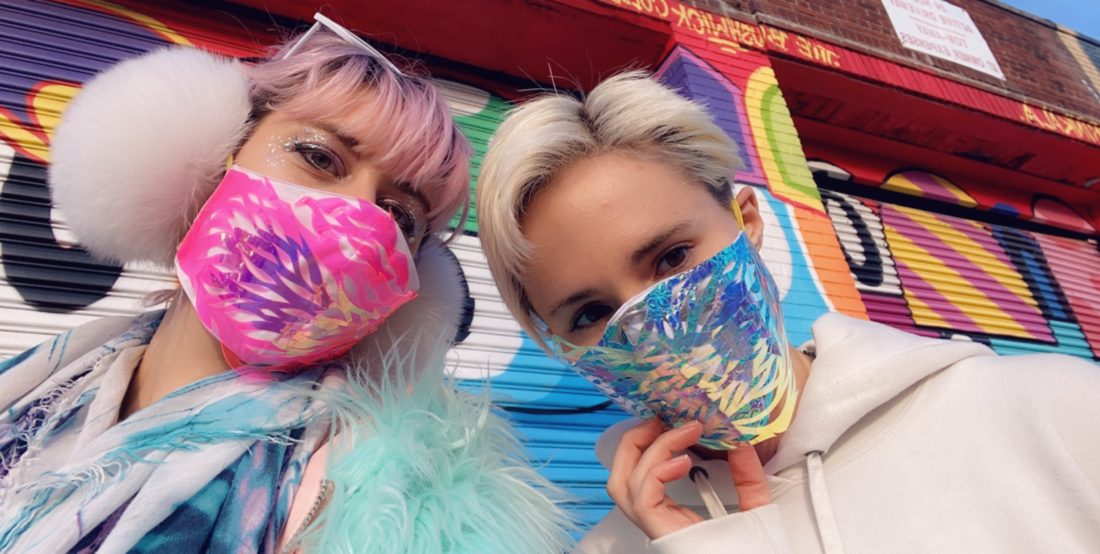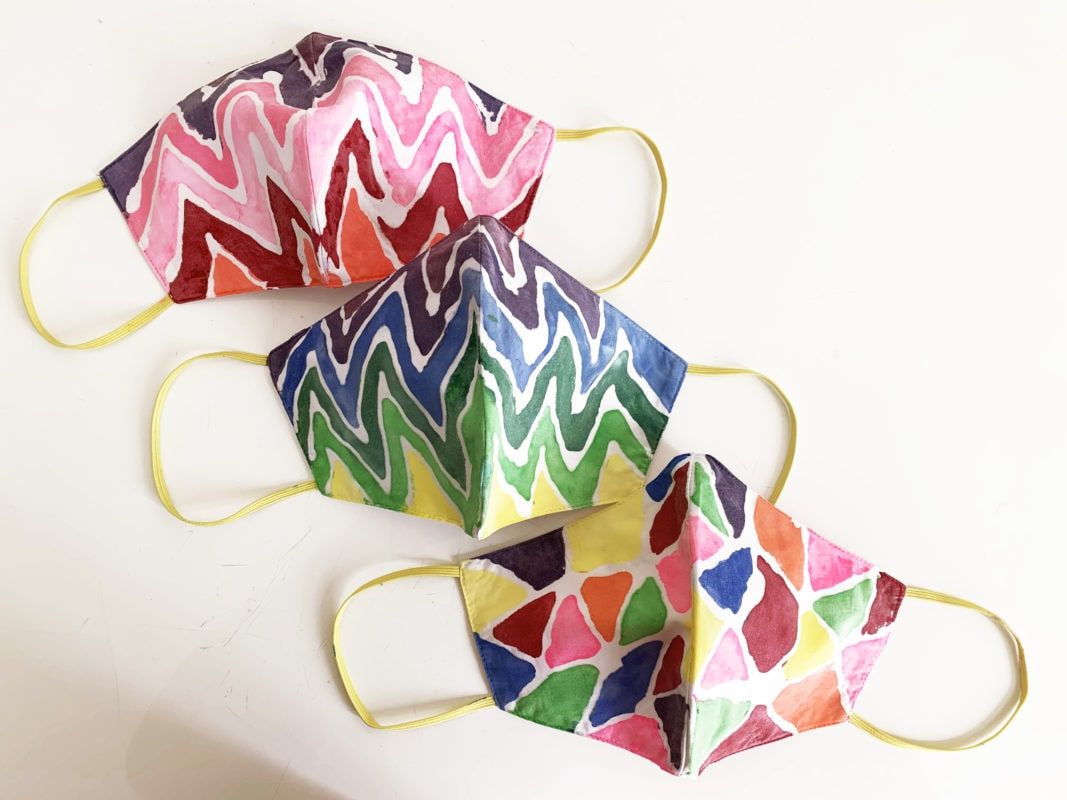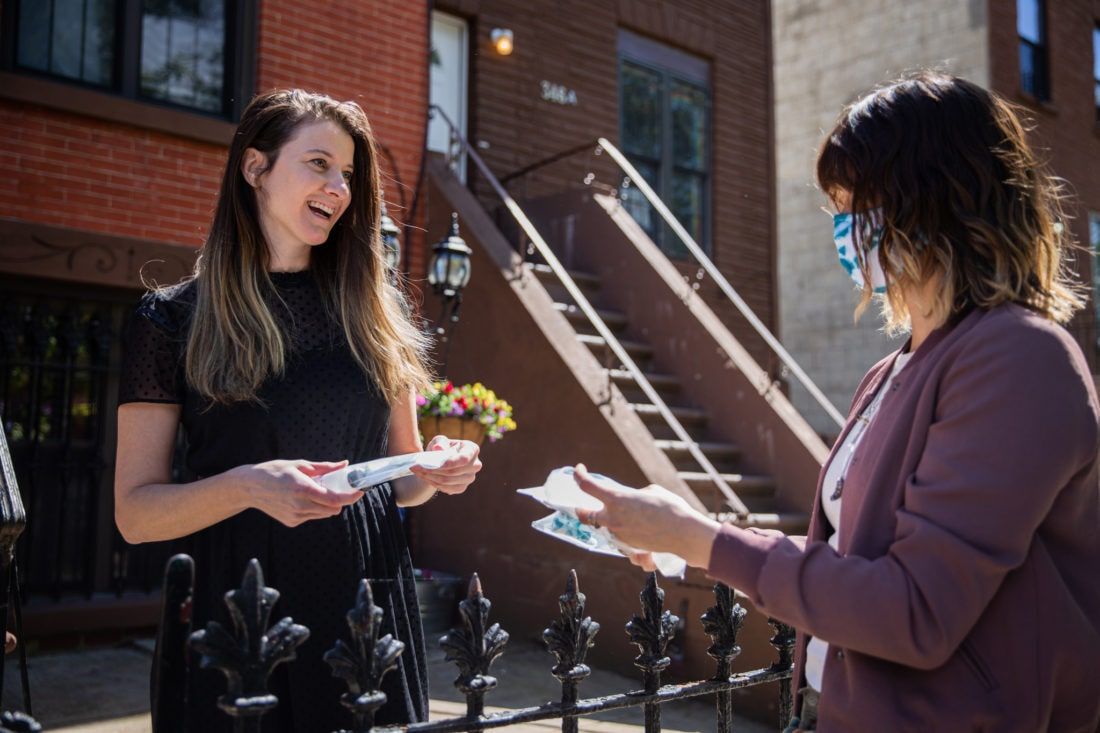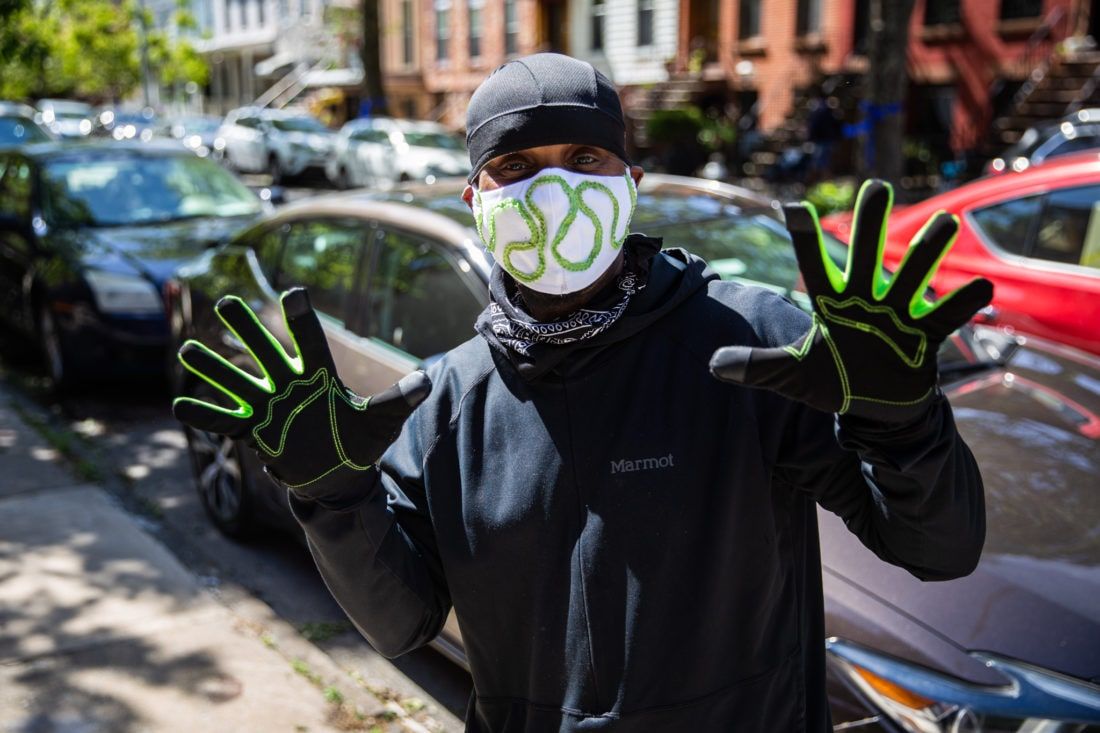Masks In the Wild – PPE For Every Personality


With the help of talented local artists, the community arts organization Wallplay is changing how we look at PPE.
The company’s new project, Masks in the Wild, is a “public health project aimed at removing the fear and stigma surrounding the “new normal” of mandatory mask-wearing in public,” the website states. The project will provide New Yorkers and essential workers with free masks boasting designs from artists around the city.
“The framework of the project was meant to help artists use masks as a canvas to serve the public in a safe and essential way, and use art to connect during a very intense time,” Wallplay founder Laura O’Reilly told us over the phone.
The project, which Wallplay officially announced Friday, May 20th together with Williamsburg’s 25 Kent, is being funded by a grant from the Rockefeller Brothers Fund, initially meant to help Wallplay exhibit artists’ work. When the city began shutting down, and Wallplay could no longer open their spaces to the public, they realized that they could use the grant to help bridge the newly opened gap between artists and their audience. The company has repurposed their exhibition space at 25 Kent Ave in Williamsburg, which has laid vacant for the past few months, as a fulfillment center where they’re able to package and send out mask-making kits to participating artists. They’ve also received an essential business permit, O’Reilly said.

For the purposes of the project, Wallplay defines the term “artist” fairly loosely. Anyone who identifies as a member of the creative community is welcome to apply, O’Reilly said. What Wallplay does screen for, however, is whether the applicant has a demonstrated ability to execute a project, and that they are willing to follow through on safety precautions. Beyond that, the project is not “uber-curated,” O’Reilly explained, and the artists have complete creative freedom over their design.
“It’s really meant to be a personal process between the participant and what they want to give back to their community,” O’Reilly said.
One of the artists is costume designer Cameron Loeb. Instead of creating one design, Loeb explained, she decided it made more sense to create a variety, and let people choose the one that suited them best. “As a costume designer, my style is other people’s style,” she said. “It’s helping create that character.”
People shouldn’t be forced to wear a boring mask, Loeb said. ‘I thought, why don’t I just make everything that I think is fun and interesting and weird and different, and then let people choose what suits them,” she said. “What’s their style? What makes them excited?” She and her boyfriend, a photographer, have even begun a portrait series as a kind of record of what masks people choose, she said.

While Loeb was delivering one of the masks to a friend of hers, she ran into a delivery man who didn’t have a mask. He told her he liked hers, so she let him choose a mask from her selection. “It was really kind of a New York moment,” she said.
Artists selected to participate in the project will receive plain white pre-made masks or raw materials like cotton fabric and elastic, depending on their sewing abilities or requests, along with sanitation materials and packaging. Artists are encouraged to gift their masks to family, friends, or anyone in their community, but are strongly encouraged to give them to essential workers. By distributing masks themselves, O’Reilly said, “the artists and designers are able to not only make the masks, but they actually get to see the full supply chain of the distribution and handing it to someone.”

Artists and recipients are also invited to share images of their mask using the hashtag #masksinthewild.
Artists looking to submit their design should respond to Wallplay’s open call for submissions, which are currently still open. O’Reilly also encourages people to give donations, 100% of which will be used to purchase supplies for participating artists.
The Masks in the Wild website also includes a digital resource hub, where the public can access instructional PDFs, mask-making videos, and open source patterns, along with CDC mask sanitation guidelines.




